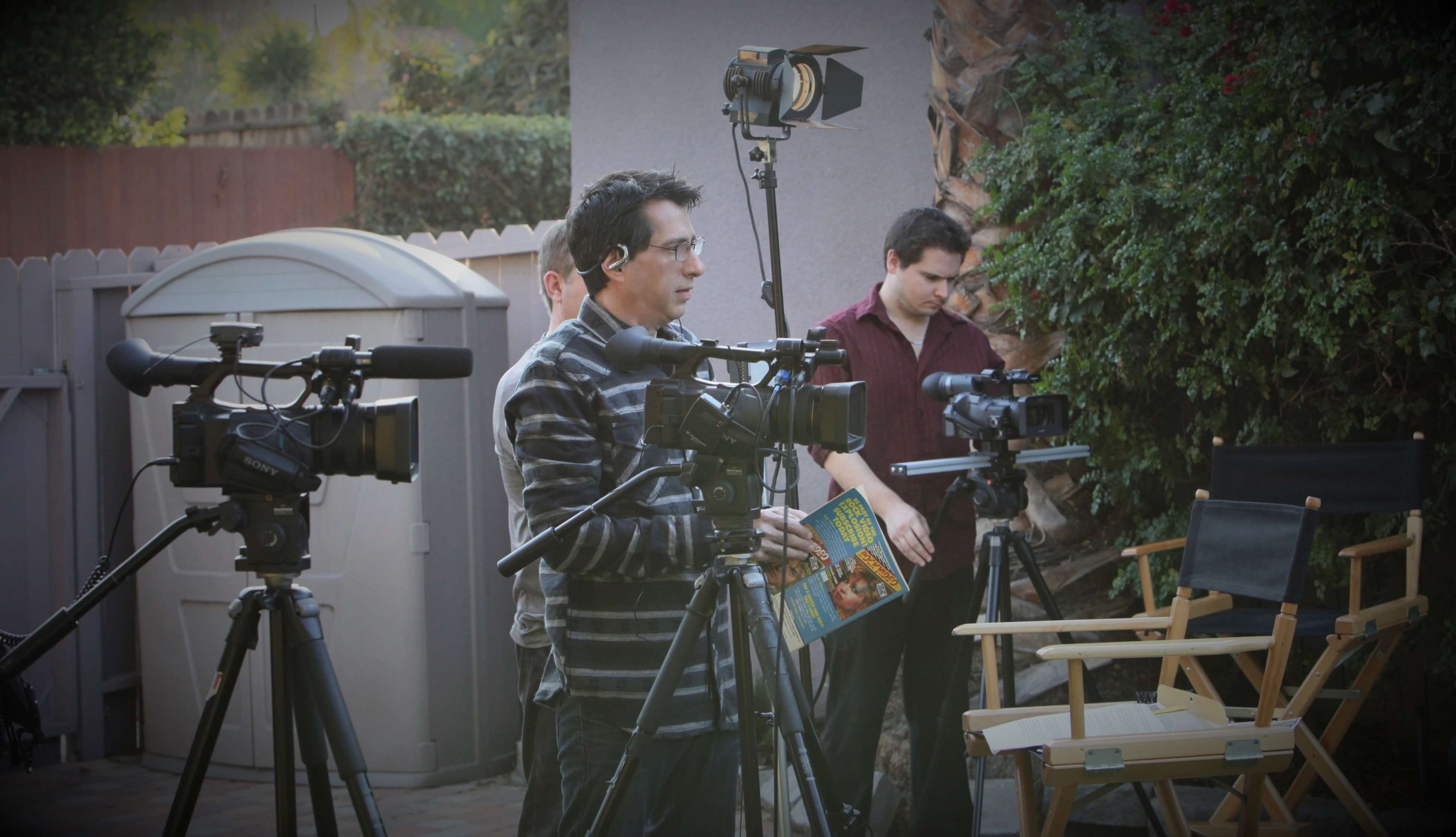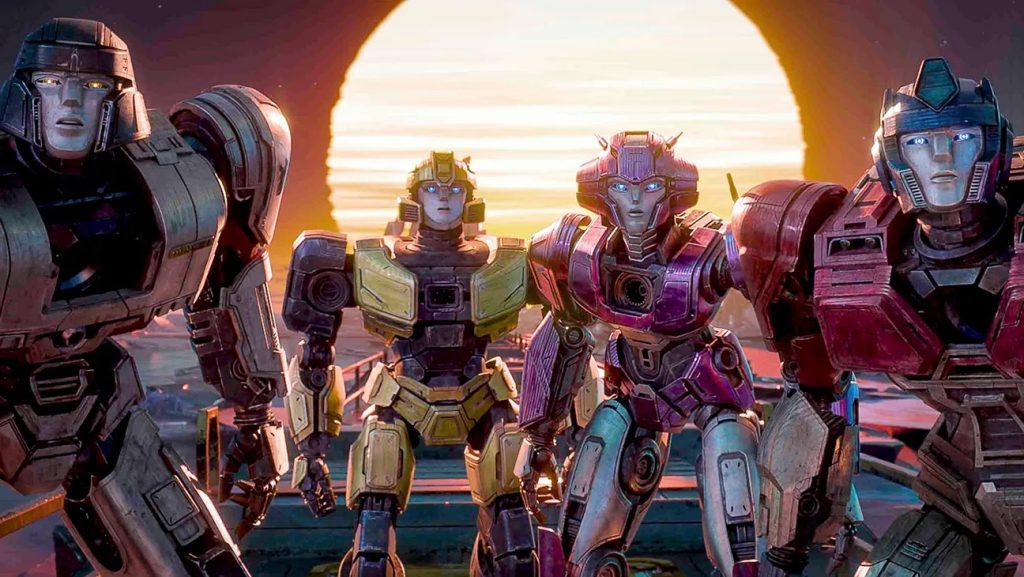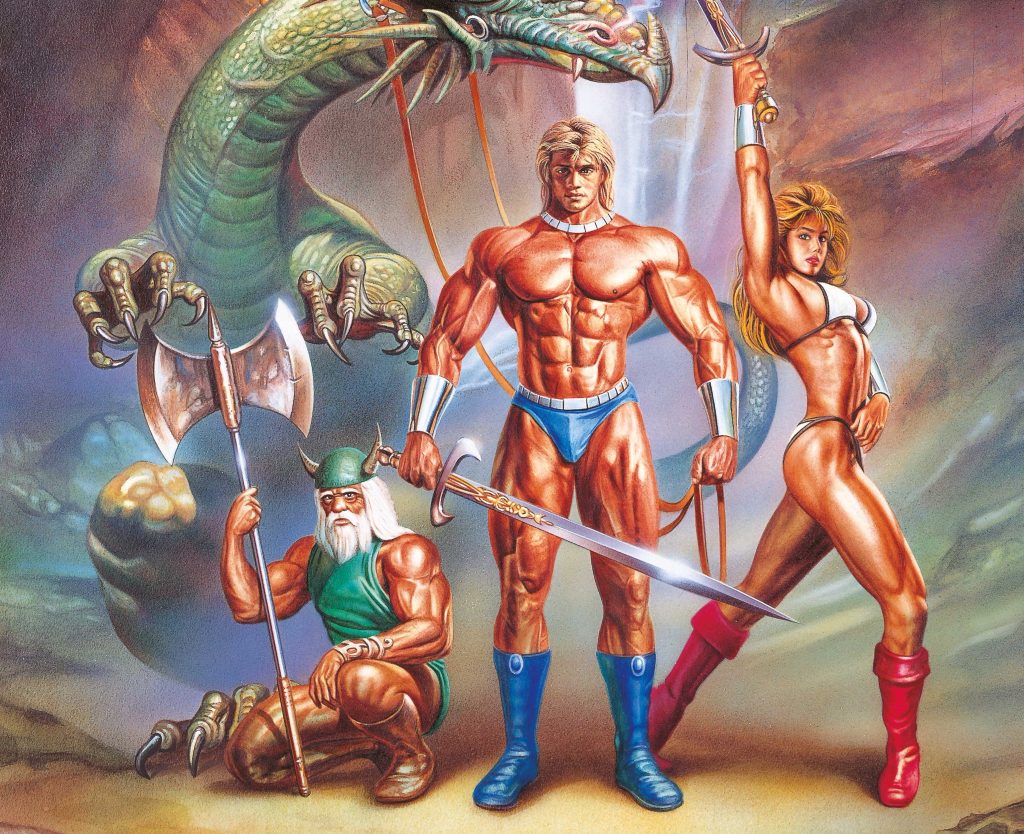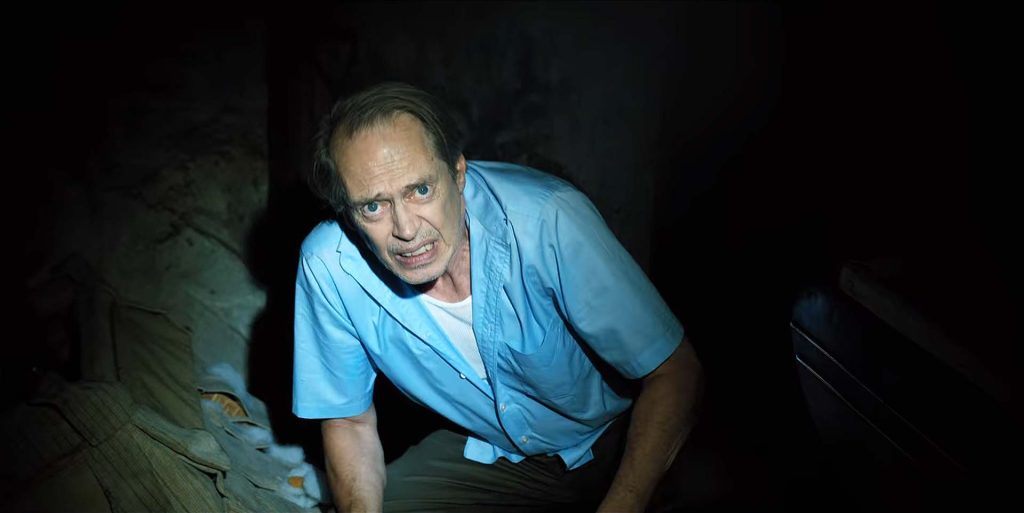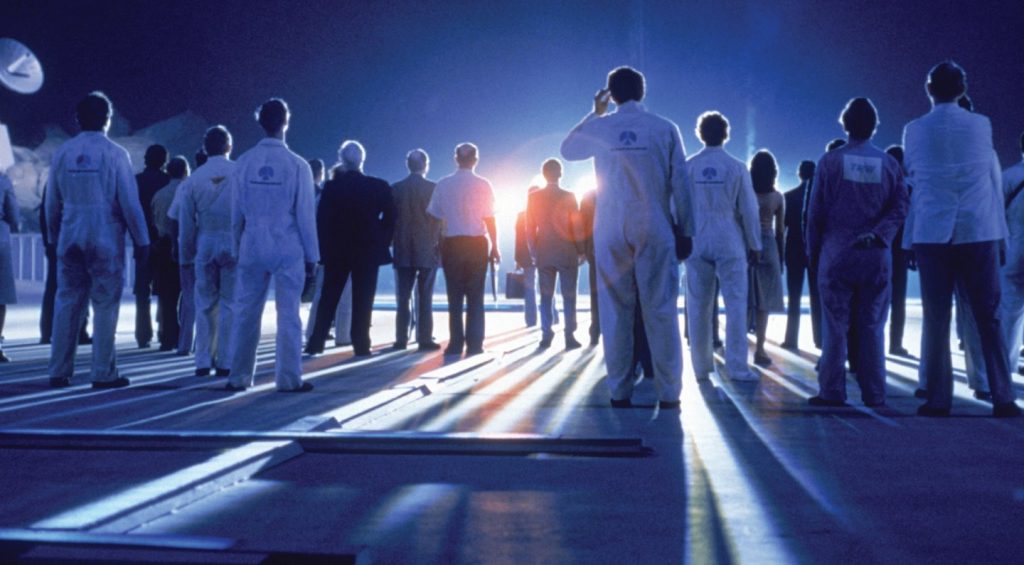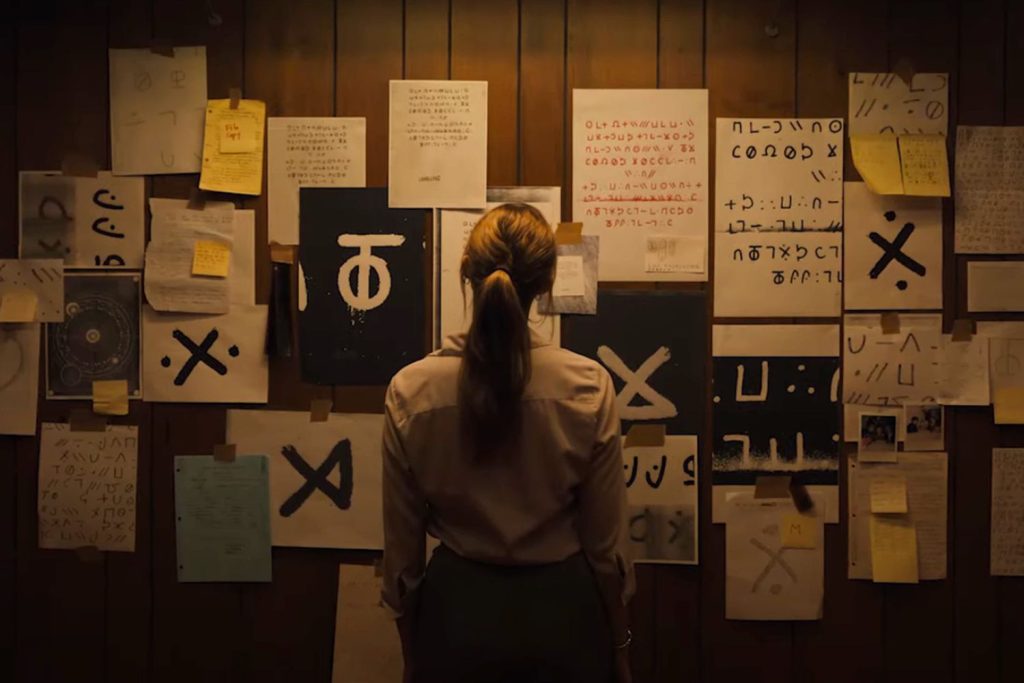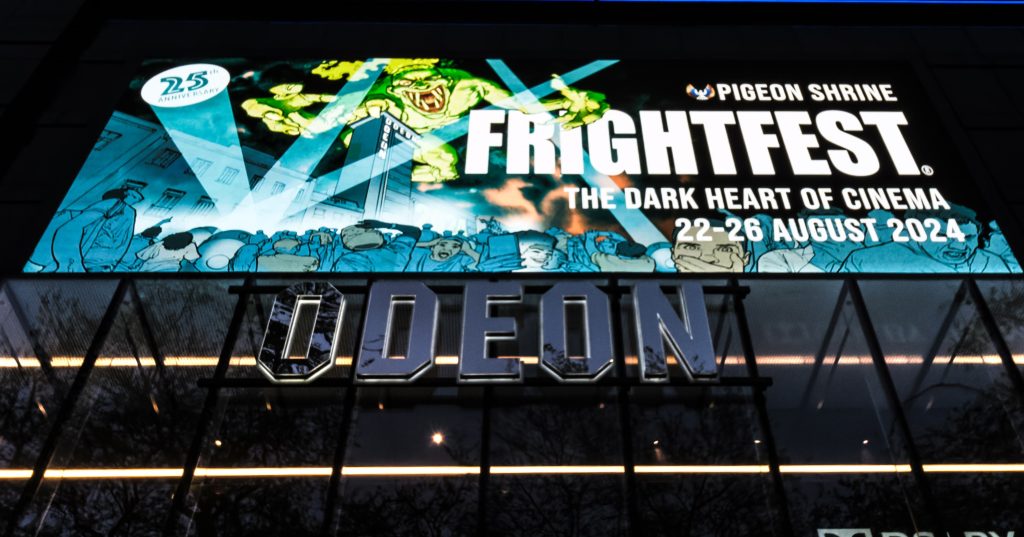With the release of I Spit on Your Grave in 4K UHD Blu-ray, which includes the original film and the documentary, Growing Up With I Spit on Your Grave, we revisit our chat with Terry Zarchi, the director of the doc, who happens to be the son of the original director, Meir Zarchi…
STARBURST: How old were you when your dad made I Spit on Your Grave – or Day of the Woman as it was then?
Terry Zarchi: I was nine years old at the time.
And you were in the film too, which is great.
Yes, I was minding my own business in Connecticut, visiting the set – of course being kept far away from any nudity, which was practically keeping away from the set period! And then I was approached to be in the movie. And I was very scared, I was a shy kid. I kept refusing and before I knew it, crew members were surrounding begging me to be in the film, and I finally agreed after I was offered my $10. I did not willingly put myself in this film, but that was the start of me growing up with I Spit on Your Grave.
When did you become aware of the movie’s content?
I was visiting my father’s office in Manhatten while he was editing the movie. I heard lots of shouting and yelling in the other room – they were editing the sounds of the movie, I was like ‘what in the world is he making here?’ When I was about 14 or 15, I finally saw the entire movie from beginning to end. And I have to say I was definitely shocked at what I saw.
We guess you’ve come to accept the movie now.
Of course, I had no choice! The reason why I wanted to make the documentary was because I really felt there was a bigger story to be told, to me this movie I Spit on Your Grave has become more than a movie, it’s become a discussion. And when a movie becomes a discussion, it becomes a little bigger than the screen, a little bigger than life. So I felt that it was important for me to share what I know, and my access to all the materials that my father has given me the privilege to put my hands on. And what you see in that documentary is 100% my story without Meir telling me how to edit anything in or out. That’s the beauty of it, he let me have free rein.
So growing up were you aware of the controversy over here in the UK?
I was aware of the controversy, yeah. I even remember when my father went out to a show out there. I remember him going out there because of the allegations of a teenager who had raped someone and blamed it on I Spit on Your Grave and other movies like it. So yes, I was very aware of that.
Did that cloud your judgement over the film at any point?
No, it’s a difficult film to judge, you know, even to this day and I think that’s what makes it so fascinating, it’s a horrible, terrible subject matter. And it’s a difficult movie to watch, and I don’t believe this is a movie to watch for entertainment purposes. When people ask me, do I recommend it, I say no I don’t recommend it! If you can handle it, see it. And you know, people see this film now because they hear about it so often. And I believe a lot of movies that were made 40/50 years ago that you look at it today feel very watered down – with this movie, there’s no watering down after all these decades, it’s still as horrifying and shocking as it was back then.
We would totally agree with you, it’s harrowing. It’s something that you don’t want to see, but it’s important to have that reaction to what’s going on.
Exactly. And I think a lot of people hear so many things about his film that they know how brutal it may be, but they want to test their reactions and they watch it. It’s a very interesting movie, but I never expected it to still have legs after all these years. And here we are.
Was there much of an outcry over in the States?
Of course, Siskel and Ebert tried to remove the movie from the theatres, and they were successful. They went in front of the theatres back in 1980, and they picketed telling the theatre owners and the audience members not to see this film. And with so much pressure, all the movie theatre owners pulled the film from the screen. And they thought they had victory over this movie, but a few months later the home video industry appeared and people heard about the controversy, and then it became top 10 on the charts all over the place because of that.
When did you get first get the idea to make the documentary?
It was shortly after the release of the remake and I saw that it was doing well, and then when there was a part two in the works, I said, ‘Okay, I have the ability to make this documentary because I’m a videographer by trade. I do event videography so my cameras were in my closet. It was like a simple thing where I’ll bring my camera to the people, and I’ll film them, and get myself a little story here. And it all started out where I thought I was going to just film Meir, and then Camille agreed to be in it, and then I got Eron Taber, who was Johnny in the film, and then I got Gunter Kleemann, who played Andy. So, before you knew it, I had a lot of talking heads. I found the production manager from the original film, so I knew I had a great story to tell, beyond what people thought they knew about this film, and I was excited to share that. So it was around 2012 we started thinking about doing this and it took me five years to make.
You were a producer on the sequel to the original; what was the shooting schedule like for Déjà Vu? It’s a long film!
Yes it is. We started filming in September of 2015. September 21st, and then we finished filming around, I think November 2nd. We shot for 29 days. And we had the luxury of doing as many takes and Meir taking the time that he needed. Meir was taking this time, he would gather all the actors every morning, or he would read the pages on the script to familiarise the actors and himself with everything. He wasn’t looking at the clock. I was! Our line producer was! But Meir wasn’t, he was very calm and he knew what he wanted to do so, we gave him all the support that he needed, and we were so pleased that Camille Keaton and Meir Zarchi got back together to do this.
It was amazing to see Camille back.
Yeah, exactly. And for her to do such a physically demanding role at her age and looking so fantastic. There was a lot of running around in that movie, it was very physically demanding. And she pulled it through.
Absolutely. How did your father take to working in the digital format?
It was different, I really enjoyed the fact that we went out there and we shot it very naturally. 95-98% of the movie was shot in the daylight, we only really had one scene at night time, the cemetery scene, and we had one quick interior scene. Other than that, the whole entire film was shot outdoors with natural light. In the beginning, before we filmed, we found a look that we all agreed on. We wanted to be as naturalistic and as close as possible to look like the original even with the digital aspect. I’m pleased with the look of the film, I think we came through with that aspect.
What was the hardest part of filming the sequel?
The hardest part of the shoot was the day was when Jamie Bernadette playing the character of Christy Hill was sexually assaulted; that was a very rough few days. It was very, very hot. It was a very tough sequence because it’s not easy to shoot scenes of sexual assault, they’re really not easy at all. We really enjoyed all the gore scenes, like Herman getting the sickle in his back, and Kevin getting the bottle in between his legs – those scenes were where we were having a good time!
There’s a new group of antagonists led by the family of the original rapists. It’s interesting to have a woman – Becky, played by Maria Olsen – as the head of them.
Yeah, Becky is almost the carbon copy of Johnny from the original – she took over the cap. She took on his role she became the leader of her local pack, in the way Johnny was the leader of his pack. So yeah, you’re right about that.
It’s an interesting contrast, because we’re all led to believe women are not as nasty as men but she’s probably just as nasty if not more.
I appreciated the fact that the leader of the pack was a female, it brought a different spin on it.
There’s also the religious aspects of an eye for an eye, which means you’re never finished, because everybody’s going on forever…
Exactly, it’s a never-ending cycle of blood.
The I Spit on Your Grave 4KUHD Blu-ray featuring Terry Zarchi’s documentary Growing Up With I Spit on Your Grave is out now.

